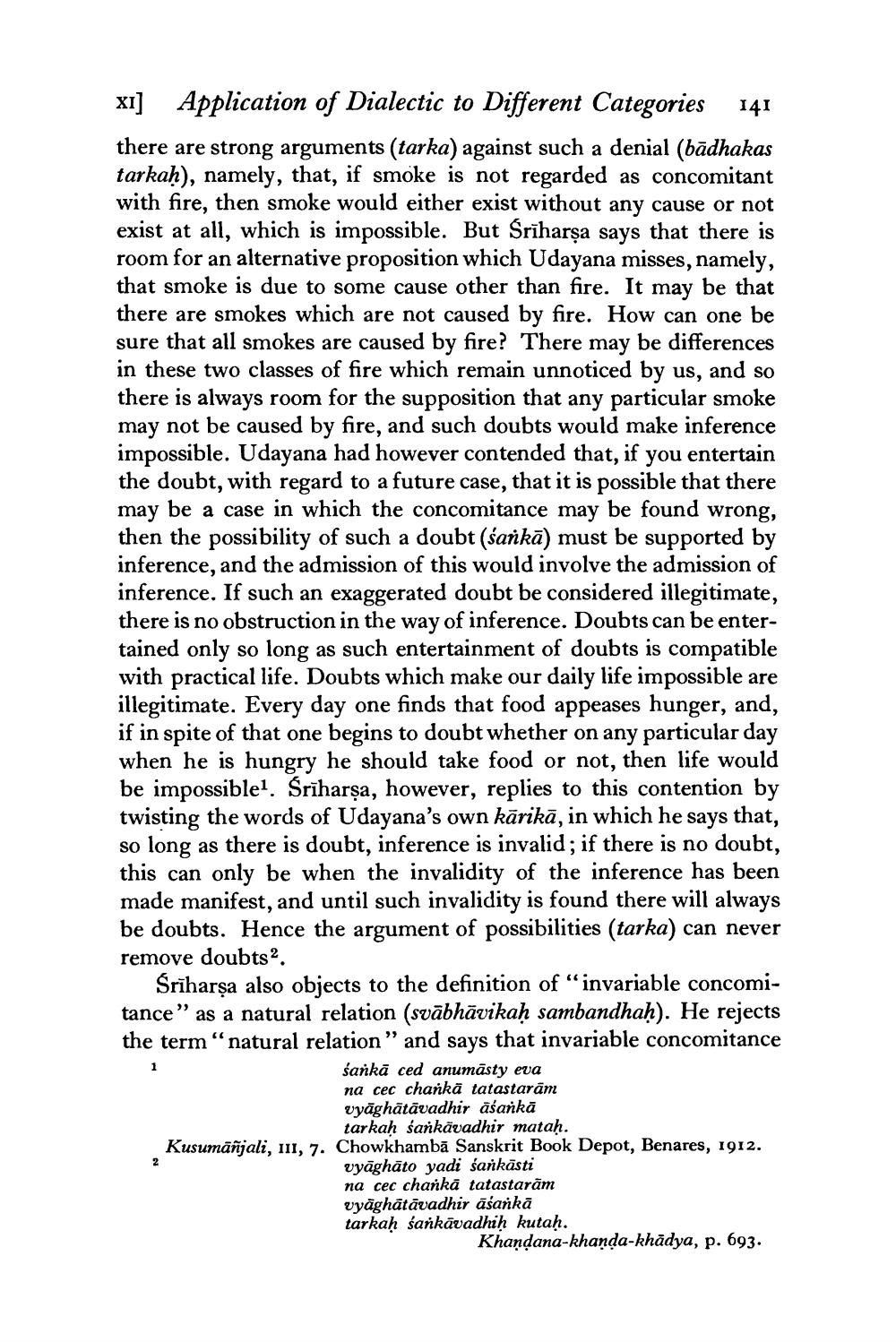________________
XI] Application of Dialectic to Different Categories 141 there are strong arguments (tarka) against such a denial (bādhakas tarkaḥ), namely, that, if smoke is not regarded as concomitant with fire, then smoke would either exist without any cause or not exist at all, which is impossible. But Srīharşa says that there is room for an alternative proposition which Udayana misses, namely, that smoke is due to some cause other than fire. It may be that there are smokes which are not caused by fire. How can one be sure that all smokes are caused by fire? There may be differences in these two classes of fire which remain unnoticed by us, and so there is always room for the supposition that any particular smoke may not be caused by fire, and such doubts would make inference impossible. Udayana had however contended that, if you entertain the doubt, with regard to a future case, that it is possible that there may be a case in which the concomitance may be found wrong, then the possibility of such a doubt (sarkā) must be supported by inference, and the admission of this would involve the admission of inference. If such an exaggerated doubt be considered illegitimate, there is no obstruction in the way of inference. Doubts can be entertained only so long as such entertainment of doubts is compatible with practical life. Doubts which make our daily life impossible are illegitimate. Every day one finds that food appeases hunger, and, if in spite of that one begins to doubt whether on any particular day when he is hungry he should take food or not, then life would be impossiblel. Śrīharşa, however, replies to this contention by twisting the words of Udayana's own kārikā, in which he says that, so long as there is doubt, inference is invalid ; if there is no doubt, this can only be when the invalidity of the inference has been made manifest, and until such invalidity is found there will always be doubts. Hence the argument of possibilities (tarka) can never remove doubts.
Śrīharşa also objects to the definition of "invariable concomitance" as a natural relation (svābhāvikaḥ sambandhaḥ). He rejects the term “natural relation" and says that invariable concomitance
śankā ce anumāsty eva na cec chankā tatastarām vyāghātāvadhir āśankā
tarkah sankāvadhir matah. Kusumāñjali, 11, 7. Chowkhambā Sanskrit Book Depot, Benares, 1912.
vyāghāto yadi sankāsti na cec chankā tatastarām vyāghātāvadhir āśankā tarkaḥ śankāvadhiḥ kutaḥ.
Khandana-khanda-khādya, p. 693.




